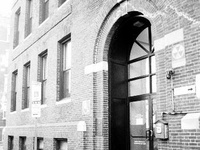In 1972, the state legislature repealed the law that allowed Plan E cities to use PR. But after legal wrangling that went all the way to the Supreme Judicial Court, Cambridge prevailed and continues to use PR to this day.
Even though they defend the PR system, critics of this fall’s recount say better technology, especially personal computers, exists now that would allow vote-counting procedures that humans alone could not have done in 1938.
When the election commission held a public hearing earlier this month on the recount, Owades and others submitted recommendations for modernizing the vote counting system.
In particular they suggested using a procedure called fractional transfer, which would eliminate the role of chance in how ballots are distributed.
Rather than pluck out selected ballots and counting them entirely, fractional transfer would take all extra ballots but weight them as if each one was just a fraction of a vote. For example, instead of counting every 4th ballot, all of the ballots would be counted with a weight of one-fourth.
That method would “take the randomness of the order out,” said school committee member Richard Harding Jr., one of the candidates to contest the November election and prevail in the recount.
If Cambridge election officials ever look to change the current system, they should push for the more radical measure of fractional representation.
“Why don’t you go the whole hog and get it so you don’t need to use the ordering,” Drugan said.
The commission is unlikely to pursue any major changes because of the long political and legal process of getting the state to amend the law that governs Cambridge elections, a provision known as 54A.
“The legal hurdles to changing 54A are would be very difficult,” Drugan said. “It would require wide-spread public support which would be difficult to marshal.”
Winters speculated that the commission would eventually make some reforms, but expressed strong concern that only superficial changes would be made.
“I’m concerned that they will make one or two changes and say, ‘See, see we fixed it,’” he says.
—Lauren R. Dorgan contributed to the reporting of this story.
—Staff writer Stephanie M. Skier can be reached at skier@fas.harvard.edu.









